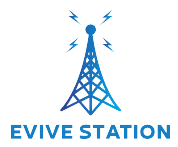Recycling plays a crucial role in waste management and environmental protection, but implementing effective recycling solutions can be costly. Read More
Fortunately, there are several cost-effective technologies and strategies that can enhance recycling efficiency while keeping expenses in check. This blog explores affordable recycling solutions and strategies that municipalities, businesses, and individuals can adopt to improve waste management without breaking the bank.
1. Low-Cost Recycling Technologies
- Manual Sorting Stations: One of the most affordable methods for recycling is the use of manual sorting stations. These stations allow workers to manually separate recyclables from waste. While labor-intensive, manual sorting can be highly effective, especially in smaller communities or facilities. Simple conveyor belts and sorting bins can streamline the process and reduce costs.
- Simple Shredders and Crushers: For recycling facilities processing plastic and metal, simple shredders and crushers can be an economical choice. These machines break down materials into smaller pieces, making them easier to handle and process. Affordable models are available for small to medium-scale operations, helping to reduce waste volume and prepare materials for further processing.
- Composting Systems: For organic waste, composting is a low-cost and effective recycling solution. Home composting bins and small-scale composting systems can be used to convert food scraps and yard waste into valuable compost. This approach reduces landfill waste and provides a nutrient-rich product for gardening and landscaping.
2. Efficient Recycling Strategies
- Source Separation Programs: Implementing source separation programs encourages individuals and businesses to separate recyclables from general waste at the point of disposal. Simple guidelines and clearly labeled bins can facilitate this process. Source separation reduces contamination and improves the quality of recyclables, making the recycling process more efficient and less costly.
- Community Recycling Initiatives: Engaging the community in recycling efforts can be both cost-effective and impactful. Local recycling drives, educational workshops, and community clean-up events can raise awareness and increase recycling participation. By leveraging community resources and volunteers, municipalities can promote recycling without significant financial investment.
- Partnerships with Local Businesses: Collaborating with local businesses for recycling initiatives can be mutually beneficial. Businesses can provide resources, such as collection bins or financial support, while municipalities can offer exposure and recognition. These partnerships help to offset costs and enhance recycling efforts in the community.
3. Affordable Recycling Equipment and Solutions
- Recycling Bins and Containers: Simple, well-designed recycling bins are essential for effective waste management. Affordable options include bins made from recycled materials, which can be both cost-effective and environmentally friendly. Proper bin placement and clear labeling can improve recycling rates without requiring significant investment.
- Low-Cost Recycling Apps: Digital solutions can help manage recycling programs affordably. Apps that provide information on recycling guidelines, collection schedules, and local recycling facilities can be a low-cost way to improve recycling efficiency. These apps can also help track recycling efforts and provide data for optimization.
- DIY Recycling Systems: For small-scale or home-based recycling, DIY systems can be an affordable alternative. Simple designs for homemade composters, bottle crushers, and sorting bins can be found online. These systems allow individuals and small businesses to manage waste effectively without significant expense.
4. Innovative Approaches to Reducing Costs
- Upcycling and Repurposing: Upcycling involves converting waste materials into new products of higher value. This creative approach can be both cost-effective and environmentally beneficial. For example, old tires can be repurposed into playground surfaces, and glass bottles can be transformed into decorative items. Upcycling reduces waste and creates additional revenue streams.
- Energy Recovery: Implementing energy recovery systems, such as waste-to-energy technologies, can be a cost-effective way to manage non-recyclable waste. These systems convert waste into energy, reducing the amount sent to landfills and generating electricity or heat. While initial investments may be higher, the long-term benefits include reduced waste disposal costs and energy savings.
- Optimizing Collection Routes: Using data analytics to optimize waste collection routes can lead to significant cost savings. By analyzing waste generation patterns and adjusting collection schedules, municipalities can reduce fuel consumption and labor costs. GPS technology and route optimization software can help improve efficiency and lower operational expenses.
5. Cost-Effective Strategies for Business
- In-House Recycling Programs: Businesses can implement in-house recycling programs to manage waste effectively. Simple measures, such as segregating recyclables, reducing packaging, and encouraging employees to participate, can lead to significant cost savings. In-house programs can also enhance corporate sustainability and reduce waste disposal costs.
- Recycling Partnerships: Forming partnerships with other businesses or organizations for joint recycling initiatives can be cost-effective. Sharing recycling resources, such as collection bins or processing facilities, can reduce expenses and increase efficiency. Collaborative efforts can also provide access to additional recycling services and support.
- Sustainable Procurement Practices: Adopting sustainable procurement practices, such as purchasing products with minimal packaging or using recycled materials, can help reduce waste and lower recycling costs. By choosing eco-friendly products and suppliers, businesses can contribute to waste reduction and improve their overall sustainability.
Conclusion
Cost-effective recycling solutions are essential for efficient waste management and environmental protection. By leveraging affordable technologies, implementing strategic recycling programs, and exploring innovative approaches, municipalities, businesses, and individuals can enhance recycling efforts without significant financial investment. Embracing these solutions helps reduce waste, conserve resources, and promote sustainability, contributing to a cleaner and healthier planet for future generations.
